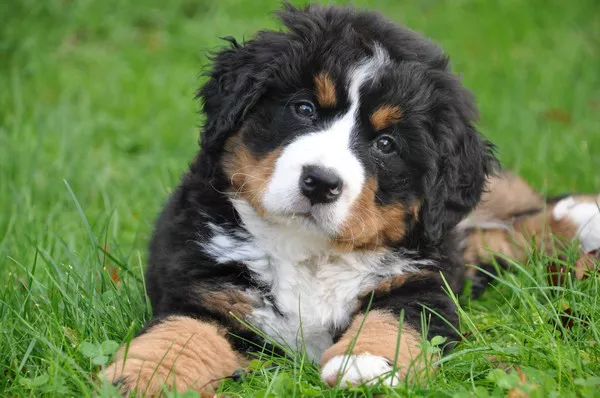The Chow Chow is a unique and ancient breed, recognized for its distinctive lion-like appearance and blue-black tongue. Originating from China, this breed has a long history and a set of characteristics that make it stand out among dog breeds. While the Chow Chow is renowned for its striking appearance and loyal nature, it is also known to have a range of potential health issues. This article explores the health problems associated with Chow Chows, delving into their breed characteristics, common health concerns, and the best practices for maintaining their well-being.
Breed Characteristics of the Chow Chow
Appearance and Physical Traits
The Chow Chow is instantly recognizable due to its thick double coat, which can be either rough or smooth. The breed’s most notable feature is its lion-like mane, giving it a regal and majestic appearance. The coat comes in various colors, including red, black, blue, cinnamon, and cream. Additionally, the Chow Chow’s distinctive blue-black tongue and deep-set eyes contribute to its unique look.
Size and Build: Chow Chows are medium-sized dogs with a sturdy and compact build. Males typically weigh between 55 to 70 pounds, while females are slightly smaller, ranging from 45 to 60 pounds. Their height ranges from 17 to 20 inches at the shoulder.
Temperament: Known for their aloof and independent nature, Chow Chows are often reserved with strangers but deeply loyal to their families. They are intelligent and can be quite stubborn, making training a challenge.
Living Habits and Care Requirements
Chow Chows are adaptable dogs that can live comfortably in various environments, including both urban and rural settings. However, their thick coat requires regular grooming to prevent matting and manage shedding.
Exercise Needs: Despite their somewhat sedentary appearance, Chow Chows need regular exercise to stay healthy. Daily walks and playtime are essential to maintain their physical health and prevent obesity.
Grooming: The Chow Chow’s coat requires frequent brushing, especially for the rough-coated variety. Regular grooming helps to keep the coat free of tangles and reduces the risk of skin issues. Bathing should be done as needed, and attention should be paid to cleaning their ears and trimming their nails.
Common Health Problems in Chow Chows
Genetic Predispositions and Common Ailments
Like all breeds, Chow Chows are prone to certain genetic health issues. Understanding these potential problems can help owners take preventive measures and seek early treatment if necessary.
Hip Dysplasia
Hip dysplasia is a common condition in Chow Chows, characterized by the abnormal development of the hip joint. This condition can lead to arthritis and pain, impacting the dog’s mobility. Regular check-ups with a veterinarian and maintaining a healthy weight can help manage and mitigate the effects of hip dysplasia.
Symptoms: Symptoms may include difficulty in rising, reluctance to jump or climb stairs, and a noticeable limp.
Management: Weight management and joint supplements can aid in managing symptoms. In severe cases, surgical intervention may be required.
Elbow Dysplasia
Elbow dysplasia, similar to hip dysplasia, affects the elbow joint and can lead to arthritis and discomfort. It is caused by the improper development of the elbow joint and is often seen in larger breeds, including the Chow Chow.
Symptoms: Signs include front limb lameness, stiffness, and difficulty in movement.
Management: Treatment may involve weight management, anti-inflammatory medications, and in severe cases, surgical correction.
Eye Problems
Chow Chows are also prone to certain eye conditions that can affect their vision and overall quality of life.
Entropion
Entropion is a condition where the eyelids roll inward, causing the eyelashes to rub against the cornea. This can lead to irritation, pain, and potential damage to the eye.
Symptoms: Symptoms include squinting, excessive tearing, and redness.
Management: Surgical correction is often necessary to correct the eyelid position and relieve discomfort.
Progressive Retinal Atrophy (PRA)
PRA is a degenerative eye disease that leads to the gradual loss of vision and can eventually result in blindness. It is an inherited condition, and early detection is crucial for managing the disease.
Symptoms: Signs include night blindness, difficulty seeing in dim light, and eventual loss of vision.
Management: While there is no cure for PRA, regular veterinary check-ups can help monitor the progression of the disease and adapt care as needed.
Skin and Coat Issues
The Chow Chow’s thick coat can predispose them to various skin and coat problems. Regular grooming and attention to skin health are essential for preventing these issues.
See Also: Why Is My Chow Chow So Aggressive?
Hot Spots
Hot spots, or acute moist dermatitis, are localized areas of inflamed, infected skin. They are often caused by excessive scratching or licking, which can be exacerbated by the breed’s dense coat.
Symptoms: Symptoms include red, inflamed skin, itching, and discharge.
Management: Treatment involves cleaning the affected area, applying topical medications, and addressing the underlying cause of the itching or irritation.
Allergies
Chow Chows can suffer from allergies that manifest as skin problems or digestive issues. Common allergens include certain foods, environmental factors, and flea bites.
Symptoms: Symptoms may include itching, rashes, and gastrointestinal upset.
Management: Identifying and avoiding allergens, along with using hypoallergenic products and medications, can help manage allergic reactions.
Preventive Measures and Health Management
Regular Veterinary Check-Ups
Routine veterinary visits are crucial for maintaining the health of Chow Chows. Regular check-ups allow for early detection of potential health issues and ensure that vaccinations and preventative treatments are up-to-date.
Vaccinations: Ensure that your Chow Chow receives all necessary vaccinations to protect against common diseases.
Health Screenings: Regular screenings for genetic conditions such as hip dysplasia and eye disorders can help in early diagnosis and management.
Diet and Nutrition
A balanced diet is essential for the overall health of Chow Chows. Proper nutrition supports their coat health, weight management, and overall well-being.
Quality Food: Feed your Chow Chow high-quality dog food that meets their specific dietary needs. Consult with your veterinarian to choose the best food for your dog’s age, size, and health condition.
Portion Control: Monitor portion sizes and avoid overfeeding to prevent obesity, which can exacerbate joint issues and other health problems.
Grooming and Coat Care
Regular grooming is vital for the Chow Chow’s health. Proper coat care helps prevent skin issues and keeps the dog comfortable.
Brushing: Brush your Chow Chow’s coat regularly to prevent tangles and mats. This also helps reduce shedding and maintains healthy skin.
Bathing: Bathe your Chow Chow as needed to keep their coat clean and free from parasites. Use dog-specific shampoos and avoid over-bathing, which can strip the coat of natural oils.
Exercise and Mental Stimulation
Adequate exercise and mental stimulation are essential for a Chow Chow’s physical and mental health. Regular activities help maintain a healthy weight and prevent behavioral issues.
Daily Walks: Ensure your Chow Chow gets regular walks and opportunities for exercise. This helps in maintaining their weight and overall fitness.
Mental Enrichment: Provide toys and activities that challenge your dog mentally. Puzzle toys, obedience training, and interactive games can help keep your Chow Chow engaged and happy.
Conclusion
The Chow Chow is a distinctive and beloved breed with unique characteristics and a rich history. However, like all dogs, Chow Chows are susceptible to specific health issues that require attention and management. By understanding the common health problems associated with this breed and implementing preventive measures, owners can ensure their Chow Chows lead healthy and happy lives. Regular veterinary care, proper grooming, balanced nutrition, and adequate exercise are essential components of maintaining the well-being of this majestic breed.
Related Topics:
























